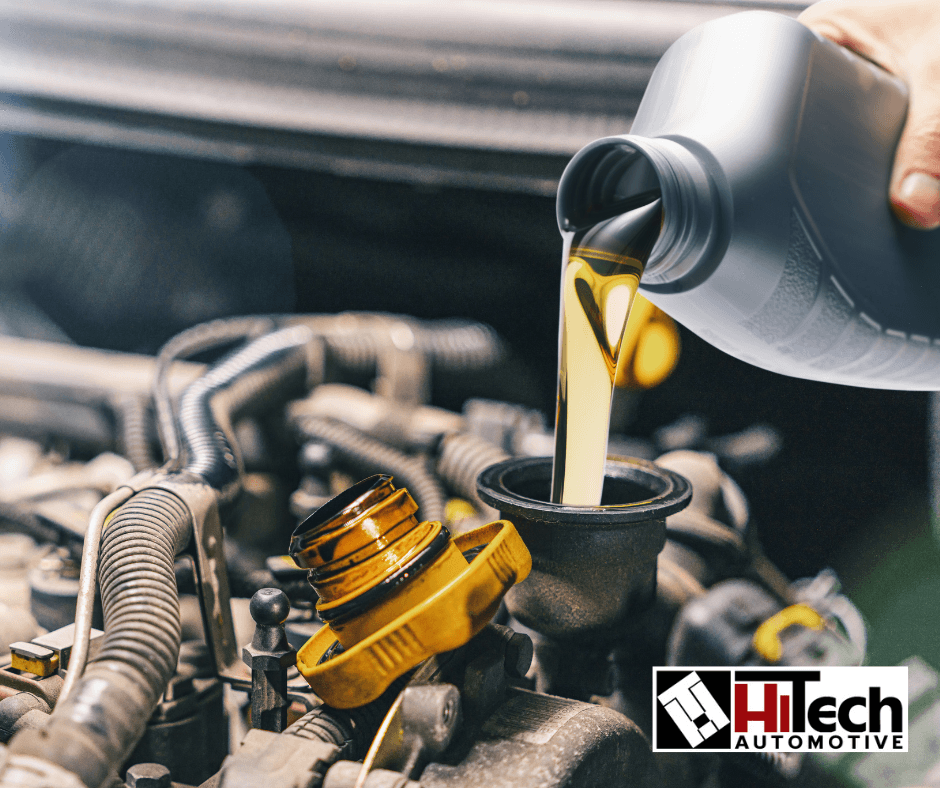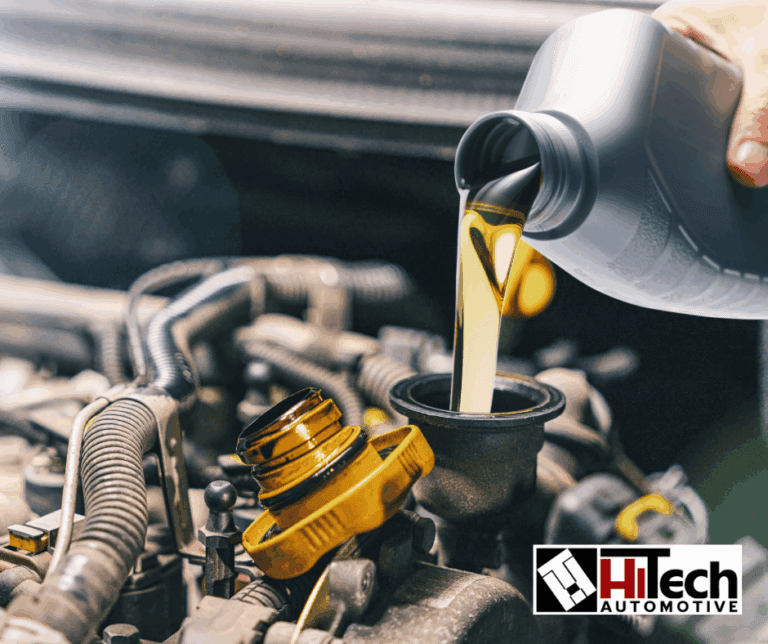At HiTech Automotive, we believe that routine maintenance is the foundation of a long-lasting, high-performing vehicle. One of the most crucial—and often overlooked—maintenance tasks is the oil change. Regular oil changes keep your engine running smoothly, improve fuel efficiency, and prevent costly repairs down the road. But how often should you change your oil? What type is best for your car? And why does it matter so much? Let’s break it down.
Why an Oil Change Matters
Your engine is a complex system of moving parts, and oil is its lifeblood. It lubricates critical engine components, reduces friction, and helps dissipate heat. Over time, however, engine oil breaks down, becomes contaminated with dirt and debris, and loses its ability to protect your engine effectively. That’s why a regular oil change is vital to your car’s performance and longevity.
Neglecting oil changes can lead to increased engine wear, decreased efficiency, and, in worst-case scenarios, engine failure. Dirty or old oil can thicken into sludge, clog vital components, and cause permanent damage to your engine. Think of oil changes as a small investment that protects a much larger one—your vehicle.
How Often Should You Get an Oil Change?
The answer to this question has evolved over the years. In the past, the standard recommendation was every 3,000 miles or three months. However, advancements in both engine design and oil technology have extended this interval for many modern vehicles.
Here are some general guidelines:
Conventional Oil: Typically requires changing every 3,000 to 5,000 miles.
Synthetic Blend Oil: Usually lasts between 5,000 and 7,500 miles.
Full Synthetic Oil: Can often go 7,500 to 10,000 miles or more between changes.
It’s important to note that these are just general rules. Your vehicle’s manufacturer will provide specific oil change intervals in your owner’s manual, tailored to your engine’s needs. At HiTech Automotive, we always recommend following the manufacturer’s guidelines, and we’re happy to help you understand them.
Driving habits also affect oil change frequency. If you frequently drive in stop-and-go traffic, tow heavy loads, or operate your vehicle in extreme temperatures, you may need to change your oil more often than average.
What Type of Oil Is Best?
Not all motor oils are created equal, and choosing the right one for your vehicle is crucial. There are three main types of motor oil:
Conventional Oil: This is the standard motor oil, derived from crude oil and suitable for older engines or vehicles with low-mileage, simple driving conditions. It’s the most budget-friendly option but requires more frequent changes.
Synthetic Blend Oil: A mix of conventional and synthetic oils, offering better performance and protection than conventional oil. It’s ideal for drivers looking for a balance between cost and performance.
Full Synthetic Oil: Engineered with advanced chemical compounds, synthetic oil offers superior lubrication, better protection at high and low temperatures, and longer intervals between oil changes. It’s highly recommended for modern engines and high-performance vehicles.
Your owner’s manual will specify the recommended oil type, viscosity, and change interval. If you’re unsure, the experts at HiTech Automotive are always ready to guide you in selecting the best oil for your engine and driving conditions.
Signs You May Need an Oil Change
Even if you’re following a regular maintenance schedule, it’s good to be aware of signs that your vehicle might need an oil change sooner than expected:
Dark, dirty oil: Clean oil is amber and slightly translucent. Dirty oil is darker and gritty.
Engine noise or knocking: Oil that’s no longer lubricating properly can lead to increased engine noise.
Oil change or check engine light: Many vehicles have dashboard indicators for low oil pressure or oil change reminders.
Exhaust smoke: Excess smoke from the exhaust could mean oil is burning in the engine.
Oil smell inside the cabin: A strong oil odor may indicate a leak or overheating.
If you notice any of these symptoms, it’s best to schedule a service appointment promptly.
Why Trust HiTech Automotive?
At HiTech Automotive, we combine expert knowledge with the latest diagnostic tools to deliver top-notch service. Our technicians are trained to handle all makes and models, ensuring your oil change is done right the first time. We use only high-quality oils and filters that meet or exceed manufacturer specifications.
We also offer convenient appointment scheduling, fair pricing, and a commitment to customer satisfaction that sets us apart from the rest. Whether you drive a compact car, SUV, or performance vehicle, we make it easy to protect your engine and extend your vehicle’s life.
Final Thoughts
A routine oil change is one of the simplest yet most important things you can do for your vehicle. Understanding how often to change your oil, what type to use, and why it matters can help you avoid costly repairs and enjoy better performance. Don’t wait until it’s too late—schedule your next oil change with HiTech Automotive today by clicking here and drive with confidence, knowing your engine is in expert hands.












